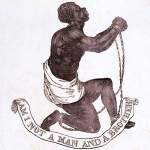With crowds numbering in the thousands outside the court and spectators like Lucretia Mott and Passmore Williamson inside, George Earle, J. Miller McKim, and others had defended Daniel Dangerfield over two days, citing mistaken identity. As the case went on, the mayor deployed large numbers of police to control the crowds and prevent the kind of rescue recently seen in other parts of the country. On the third day, Commissioner Longstreth agreed that the case of identification was not certain and Dangerfield was released. He did not return to his Harrisburg Pennsylvania home, however, until the Philadelphia crowds had paraded him around the city in triumph. (By John Osborne)
Source Citation
"Fugitive Slave Cases: The case of Daniel, at Philadelphia -- Great Excitement," New York Times, April 9, 1859, p. 10.
Record Data
Date Certainty
Exact
Type
Slavery/Abolition




